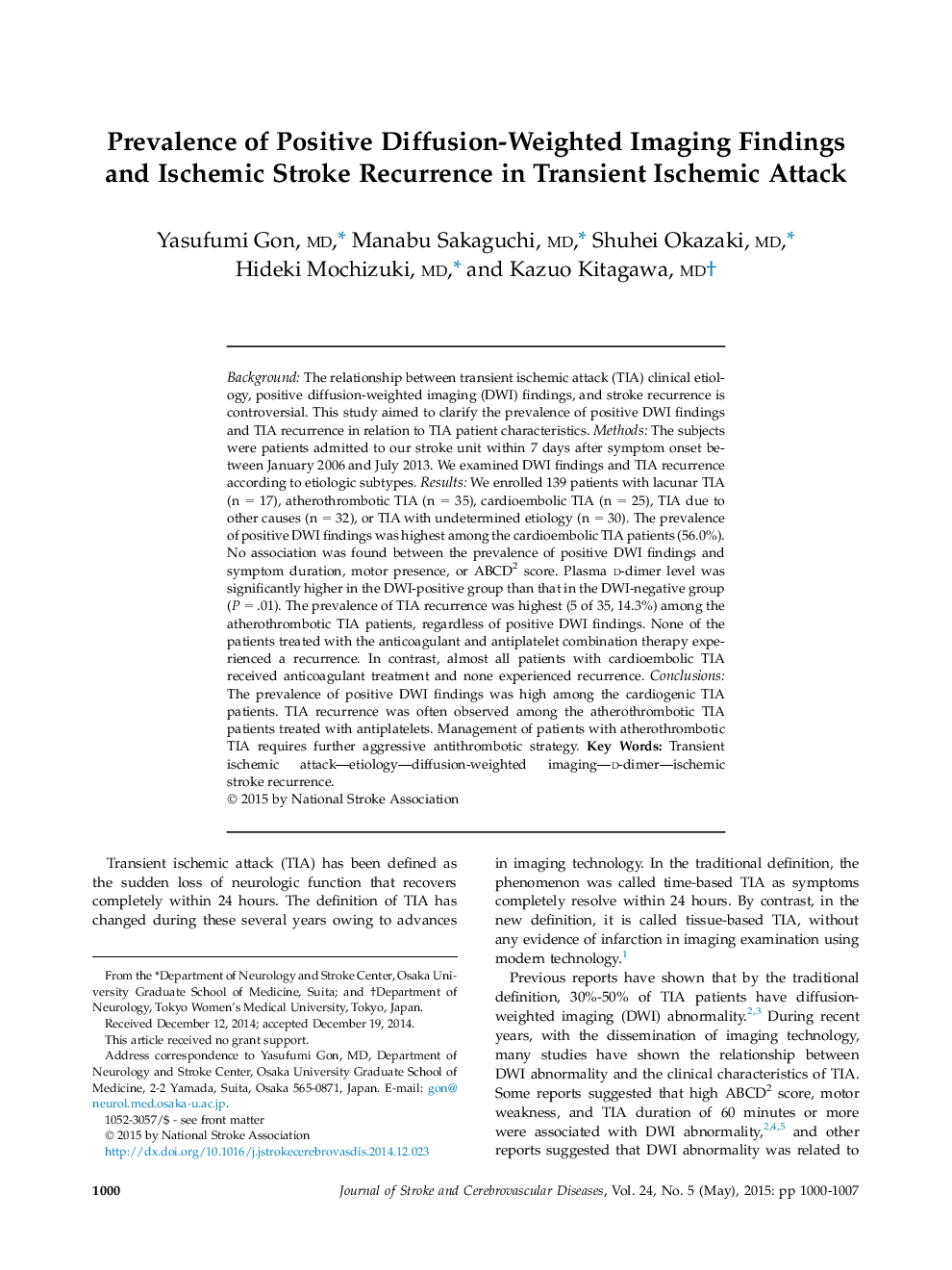| Article ID | Journal | Published Year | Pages | File Type |
|---|---|---|---|---|
| 2703902 | Journal of Stroke and Cerebrovascular Diseases | 2015 | 8 Pages |
BackgroundThe relationship between transient ischemic attack (TIA) clinical etiology, positive diffusion-weighted imaging (DWI) findings, and stroke recurrence is controversial. This study aimed to clarify the prevalence of positive DWI findings and TIA recurrence in relation to TIA patient characteristics.MethodsThe subjects were patients admitted to our stroke unit within 7 days after symptom onset between January 2006 and July 2013. We examined DWI findings and TIA recurrence according to etiologic subtypes.ResultsWe enrolled 139 patients with lacunar TIA (n = 17), atherothrombotic TIA (n = 35), cardioembolic TIA (n = 25), TIA due to other causes (n = 32), or TIA with undetermined etiology (n = 30). The prevalence of positive DWI findings was highest among the cardioembolic TIA patients (56.0%). No association was found between the prevalence of positive DWI findings and symptom duration, motor presence, or ABCD2 score. Plasma d-dimer level was significantly higher in the DWI-positive group than that in the DWI-negative group (P = .01). The prevalence of TIA recurrence was highest (5 of 35, 14.3%) among the atherothrombotic TIA patients, regardless of positive DWI findings. None of the patients treated with the anticoagulant and antiplatelet combination therapy experienced a recurrence. In contrast, almost all patients with cardioembolic TIA received anticoagulant treatment and none experienced recurrence.ConclusionsThe prevalence of positive DWI findings was high among the cardiogenic TIA patients. TIA recurrence was often observed among the atherothrombotic TIA patients treated with antiplatelets. Management of patients with atherothrombotic TIA requires further aggressive antithrombotic strategy.
